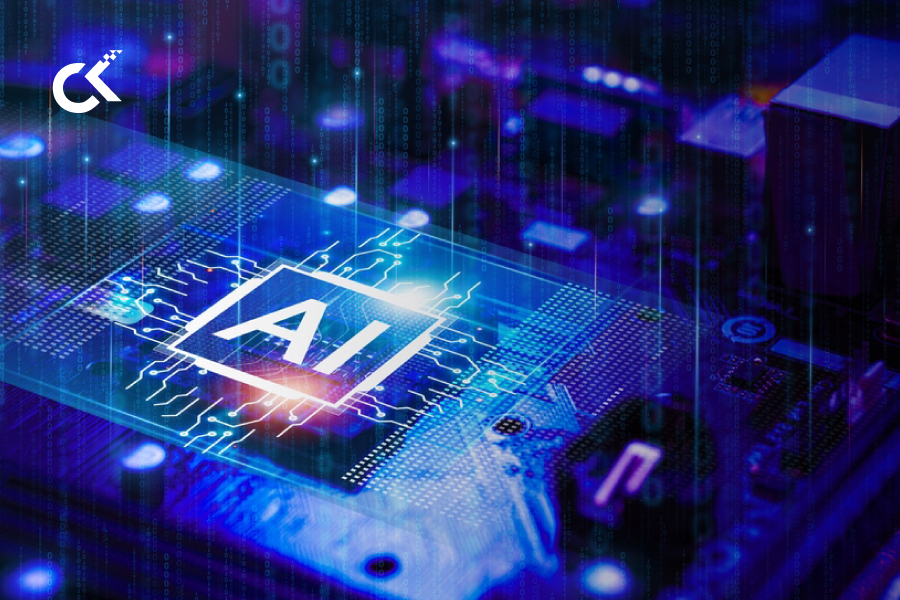The hype surrounding GenAI is palpable, with headlines often touting its potential to replace human creativity and intelligence. However, the reality is more nuanced, especially for enterprises looking to make the most of it. While GenAI has made significant strides, it is essential to understand its capabilities and limitations – and the foundational aspects you need in place – to leverage it for business applications and goals.
According to a McKinsey evaluation, the key to GenAI success is in identifying practical applications that drive real business value rather than getting carried away by exaggerated claims.
Generative AI refers to AI systems that create new content, such as text, images, or music, based on their training data. Key to GenAI are Large Language Models (LLMs) and Foundation Models (FMs), designed to produce human-like text from extensive datasets. Central to GenAI are Large Language Models (LLMs) and Foundation Models (FMs), which are designed to understand and produce human-like text. These models, trained on vast datasets, enable the generation of coherent and contextually relevant content.
Top 4 business benefits of GenAI applications for enterprises
Gartner forecasts that by 2026, over 80% of enterprises will integrate GenAI APIs or models into their operations, a dramatic increase from less than 5% in 2023.
Business benefits could include:
Enhance decision making
Optimize business processes
Boost productivity & creativity
Enhance customer experiences
Enhance your decision making
Imagine a finance team at a global enterprise that regularly faces high-stakes decisions. Traditionally, analysts would sift through historical data, market trends, and economic indicators to forecast outcomes. Now, with GenAI, this process is not only faster but significantly more accurate.
For instance, the AI model analyses millions of data points from diverse sources in real-time, spotting correlations that even the most seasoned analyst might miss. The team can then leverage these insights to make split-second decisions on investments, risk management, and market strategies, ensuring they stay ahead of the competition.
Optimize business processes
Consider a manufacturing plant that operates 24/7. Equipment failures and unexpected downtime can lead to massive losses. With GenAI, the plant’s maintenance team doesn’t just react to problems — they prevent them.
GenAI systems continuously monitor machinery, analysing patterns and predicting failures before they happen. Picture a team receiving alerts on their tablets, detailing exactly which component is at risk and when it needs attention.
This proactive approach not only prevents costly disruptions but also optimizes resource allocation, as maintenance is performed only when truly necessary, reducing waste and boosting overall efficiency.
Boost productivity and creativity
In entertainment and media, staying relevant requires constant innovation. Picture a content creation team tasked with developing a new series. With GenAI, they’re not starting from scratch.
The AI suggests fresh storylines, generates character arcs, and even predicts audience preferences based on current trends. As the team collaborates with GenAI, they are able to push creative boundaries, producing content that resonates more deeply with audiences.
This blend of human creativity and AI-driven innovation results in ground breaking content that captivates viewers and sets new industry standards.
Enhance customer experience and engagement
Imagine an e-commerce team using GenAI to craft personalized recommendations for each customer based on their behaviour and purchase history. Instead of broad segments, customers receive tailored emails showcasing products they’re likely to love, boosting conversion rates and loyalty.
GenAI enables enterprises to deliver highly personalized and timely customer interactions, from tailored product recommendations in e-commerce to proactive support in retail, while also building emotional connections through personalized messaging. This enhances customer satisfaction, drives loyalty, and fosters long-term business growth.
GenAI use cases for 6 industries
GenAI is transforming various industries by enhancing functionality and efficiency.
Retail
- Inventory & Sales analytics
- Risk analytics
- Supplier analytics
- Customer experience enhancement
Insurance
- Smart claims management
- Data enrichment
- Geocoding and leveraging location
- KYC and customer 360
Transport & Logistics
- Route optimization
- Demand forecasting
- Supply chain optimization
Banks
- Risk analytics
- Collection analytics
- Portfolio analytics
- Customer analytics
Manufacturing
- Inventory monitoring
- Supplier analytics
- Process automation
- Production planning
Government services
- Citizen services self-help
- Intelligent document
- processing and validation
- KYC and citizen 360
Inventory & Sales Analytics
A textile retailer who once struggled with excessive inventory — leading to financial losses and wasted shelf space — can now leverage GenAI to analyse vast datasets like sales history, media trends, and customer preferences. This advanced analysis helps them accurately predict demand, enabling precise ordering for the upcoming season. As a result, they maintain optimal stock levels, reduce waste, free up shelf space, and improve profitability.
Risk Analytics
Retail chains often face challenges like fraudulent transactions and supply chain disruptions. By employing GenAI-driven risk analytics, they can detect anomalies in real time, allowing for intervention before issues escalate. For instance, a sudden spike in returns might be flagged as potential fraud, enabling immediate action and ensuring smooth operations.
Supplier Analytics
Managing multiple suppliers can be daunting, but with GenAI, retailers can assess and manage supplier performance more effectively. By analysing data on reliability, delivery times, and product quality, they can identify underperforming suppliers and make informed decisions, such as seeking alternatives or negotiating better terms, thereby strengthening their supply chain.
Customer Experience
Enhancement Retailers can significantly enhance the customer experience by offering personalized recommendations powered by GenAI. Analysing customer behaviour and preferences allows them to create tailored marketing campaigns and product suggestions, resulting in a more satisfying shopping experience that fosters long-term loyalty.
In the retail industry, information about inventory, sales, and suppliers is now readily available at the click of a button. Businesses can understand risks and make more informed decisions, which was unimaginable just six months ago.
Smart Claims Management
Insurance companies often struggle with slow claims processing, but GenAI offers a solution by automating this process, making it faster and more accurate. When a customer files a claim, the AI can instantly review documentation, verify information, and process the payment, reducing the waiting time from weeks to just days.
Data Enrichment
To improve risk assessment models, insurers can use GenAI to enrich their data by integrating information from various sources, including social media, weather forecasts, and historical claims data. This comprehensive view allows for more accurate risk assessments, leading to better pricing and more effective customer service.
KYC
With GenAI, customer service teams can access a complete view of each policyholder’s profile. The AI compiles data from various touchpoints, ensuring compliance with KYC regulations and enabling more personalized service, such as offering relevant policy updates or efficiently responding to inquiries.
Even in traditional industries like insurance, GenAI is levelling up smart claims management. Companies are beginning to use intelligent document processing to ensure high-quality, consistent service.
Route Optimization
Logistics companies can significantly reduce delivery times and fuel costs with GenAI-driven route planning. By analysing traffic patterns, weather conditions, and delivery schedules, GenAI creates the most efficient routes, leading to faster deliveries and happier customers.
Demand Forecasting
Airlines anticipating surges in bookings, particularly around holidays, can benefit from GenAI’s predictive analytics. This technology forecasts demand, allowing airlines to allocate resources effectively, whether by adding more flights or adjusting prices to maximize revenue.
Supply Chain Optimization
Global shipping companies looking to enhance efficiency can rely on GenAI to optimize supply chain operations. By analysing data on shipping routes, fuel consumption, and port congestion, GenAI helps reduce delays, lower costs, and improve overall service quality.
Government agencies are beginning to use GenAI to make their services much more user-friendly. Citizens can now retrieve information more easily, improving their experience with public services.
Citizen Services
Self-help government services can be made more accessible and user-friendly with AI-powered chatbots. These virtual assistants provide quick and accurate information, such as answering tax filing questions or guiding users through permit applications, enhancing the overall citizen experience.
Intelligent Document Processing and Validation
Government agencies overwhelmed with paperwork can turn to GenAI for automating document processing and validation. Whether it’s passport applications or business licenses, GenAI ensures faster turnaround times and reduces the likelihood of errors.
Risk Analytics
Banks can leverage GenAI to assess and manage financial risks by analysing market trends, credit scores, and transactional data. This allows them to identify potential threats and take preventative measures, minimizing losses and safeguarding their operations.
Collection Analytics
Improving debt collection processes becomes more efficient with GenAI. By analysing customer payment histories and behaviour patterns, the AI can prioritize collections, increasing recovery rates and streamlining operations.
Portfolio Analytics
Investment teams can optimize portfolio performance using GenAI, which provides insights into market movements and potential risks. These insights help the team make informed decisions, maximizing returns for their clients.
Customer Analytics
Banks aiming to offer personalized banking experiences can utilize GenAI to analyse customer data, providing tailored financial advice and recommending relevant products. This personalized approach enhances customer satisfaction and loyalty.
Manufacturing companies are beginning to use GenAI to make high-quality decisions in inventory planning and supply chain management. This technology provides real-time insights that were unimaginable just a short time ago.
Inventory Monitoring
Manufacturers can track and manage inventory in real-time with GenAI. The AI monitors stock levels, predicts demand, and alerts the team to reorder materials before they run out, preventing production delays and reducing costs.
Supplier Analytics
Manufacturing companies can assess supplier performance using GenAI by analysing delivery times, product quality, and pricing. This allows them to choose the best suppliers, negotiate better terms, and maintain a reliable supply chain.
Process Automation
Factories can optimize production processes with GenAI, reducing downtime and increasing efficiency. This automation leads to lower costs and higher output, making operations more streamlined.
Production Planning
Production teams can create efficient schedules using GenAI by analysing data on resource availability, machine capacity, and market demand. This ensures orders are fulfilled on time and within budget.










